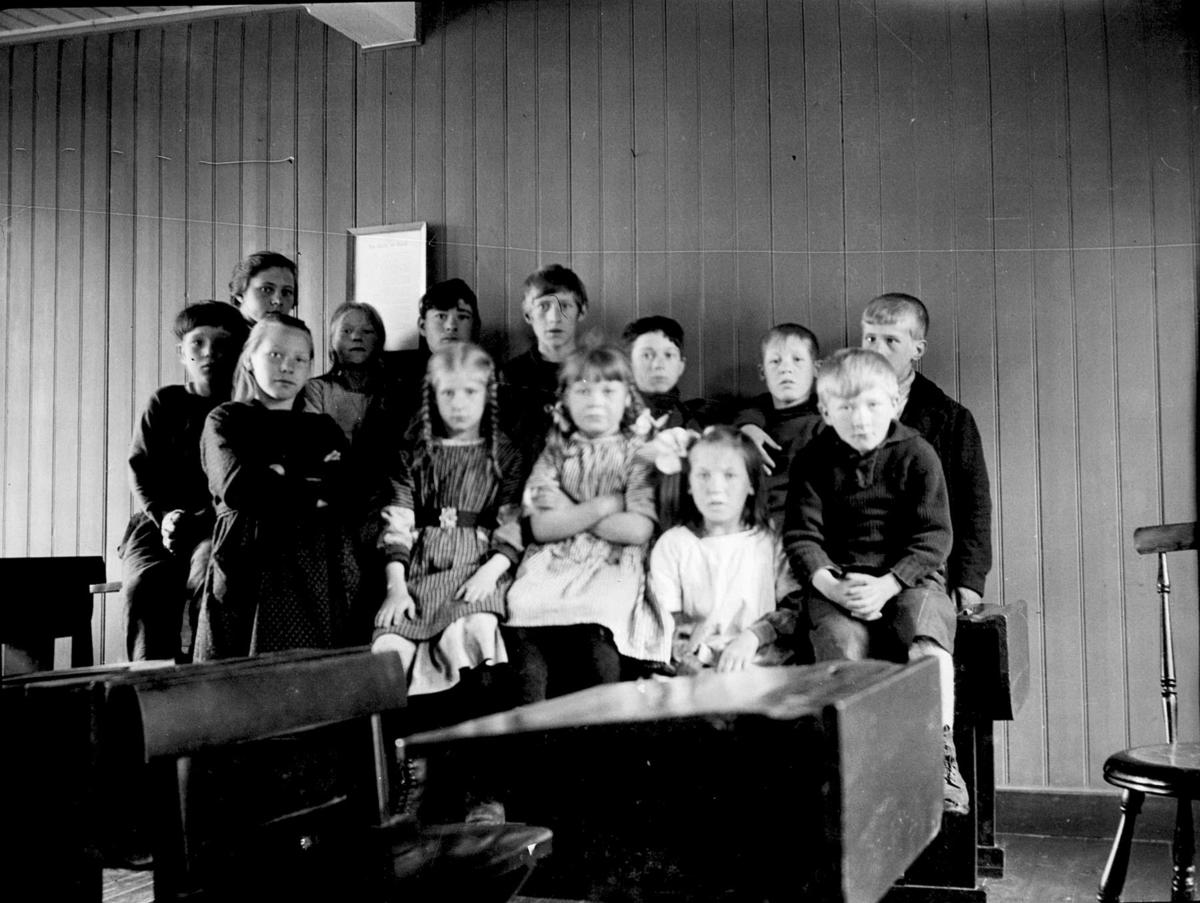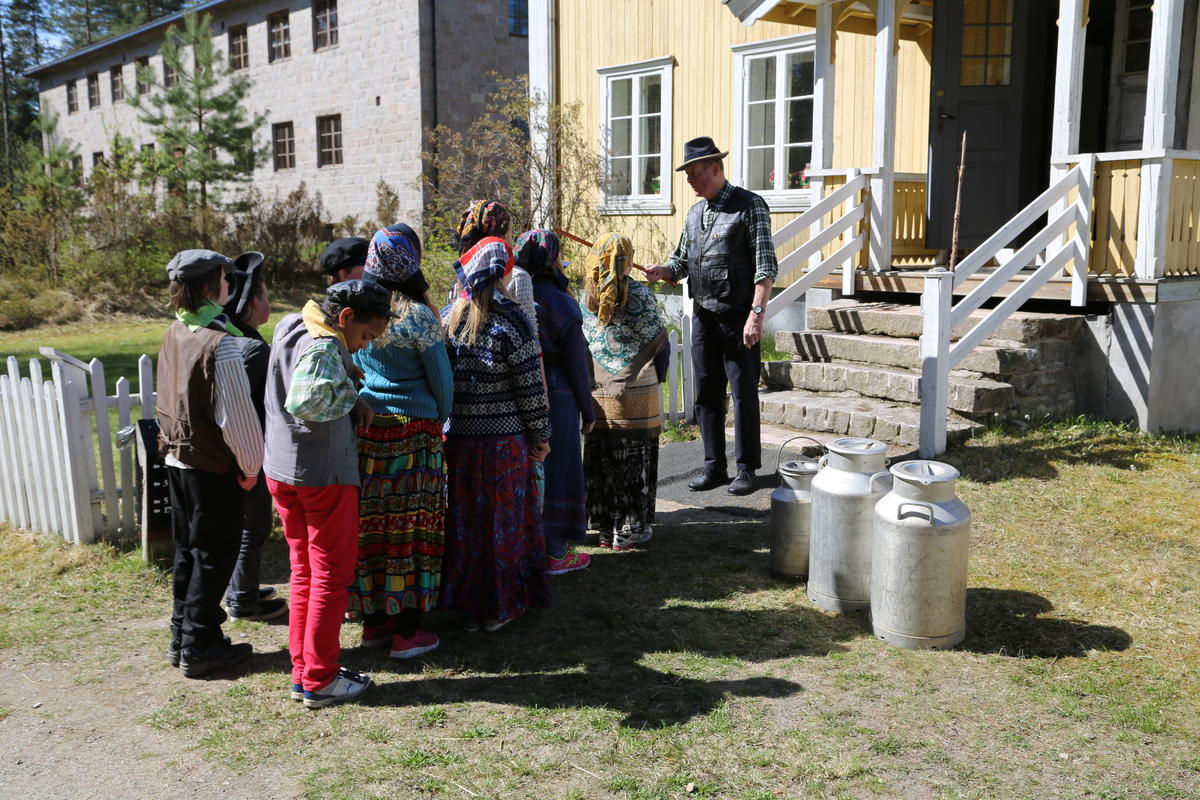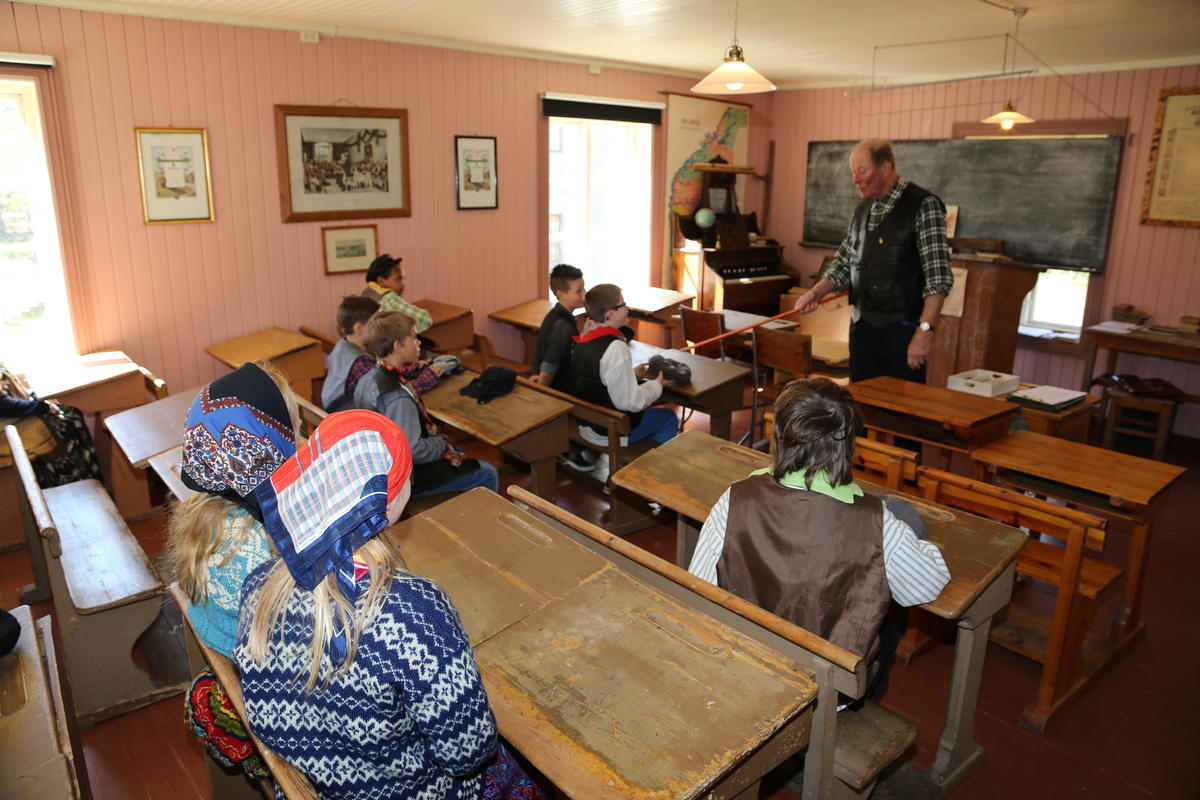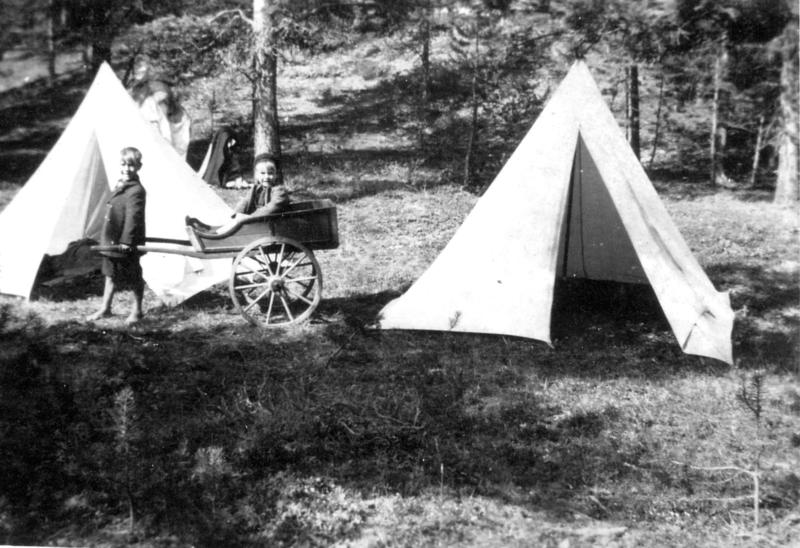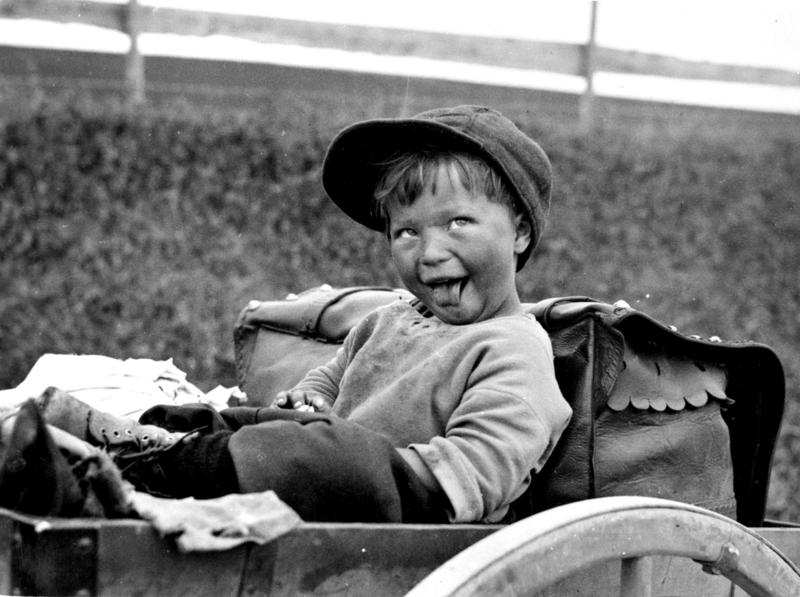It was also difficult to combine life as a Traveller with going to school every day. Today, all children of Tater heritage go to school, but the tension between schooling and travel is still there (Lund 2009).
For many Tater kids, going to school confirmed that they were at the bottom of the social scale. At best, they were simply overlooked, but in many cases they were bullied by pupils and teachers alike.
- 1/1
The school at Svanviken. Foto: Arkivet til Norsk misjon blant hjemløse/ Riksarkivet
Johan, Konstanse and Karl explain that going to school was not always easy
Johan explains:
"Combining life on the boat with schooling wasn't easy. My father might be able to let us go to school in the winter, but he had to take off with the smack in the spring and didn't have time to wait for school to end. I can read and write, but that is mostly self-taught. I've never gone to school. We weren't denied schooling, but at that time the rich kids sat close to the teacher, working people in the middle, and the 'vagabonds' had to sit at the back by the door! It wasn't very nice. They didn't understand that some 'vagabonds' could be dyslexic or hard of hearing."
(Johan B., born 1931)
Konstanse explains:
"We were seven boys and two girls growing up, and all of us went to the same school. We weren’t treated like the other children at school. We never got any help, and we had to sit at the back of the classroom. I was very young and didn’t understand much of what was going on. Why did the teacher just walk past me? It wasn’t easy going to school. There was so much swearing that I kept running away from school, so I didn’t get much schooling."
(Konstanse, født 1930)
Karl explains:
"When I started school at the age of 10 or 11, it was because I wanted to. I went to Stræte school in Våler for three years, but I didn't learn much. People didn't care about the Tater people then. They were looked upon as stupid, so there wasn't much in the way of help at school. The reading and writing I know I've taught myself. I can read and write, and I can use the yard stick and tell the time!"
"My youngest siblings have learned more and completed their schooling, while Kirsti and I, who were the oldest, did not go to school much. When I was 13, I told the teacher, ‘I haven't learned anything, so I'm not coming back!’ So I started trading with my father in earnest and had my own suitcase. We sold watches, pictures and a few other things. It was enough to make a living."
(Karl, born 1934)
- 1/1
As the school bell rings. From the role play Latjo drom at the Glomdal Museum. Foto: Emir Curt/ Anno Glomdalsmuseet
- 1/1
In the classroom. From the role play Latjo drom at the Glomdal Museum. Foto: Emir Curt/ Anno Glomdalsmuseet
- 1/1
